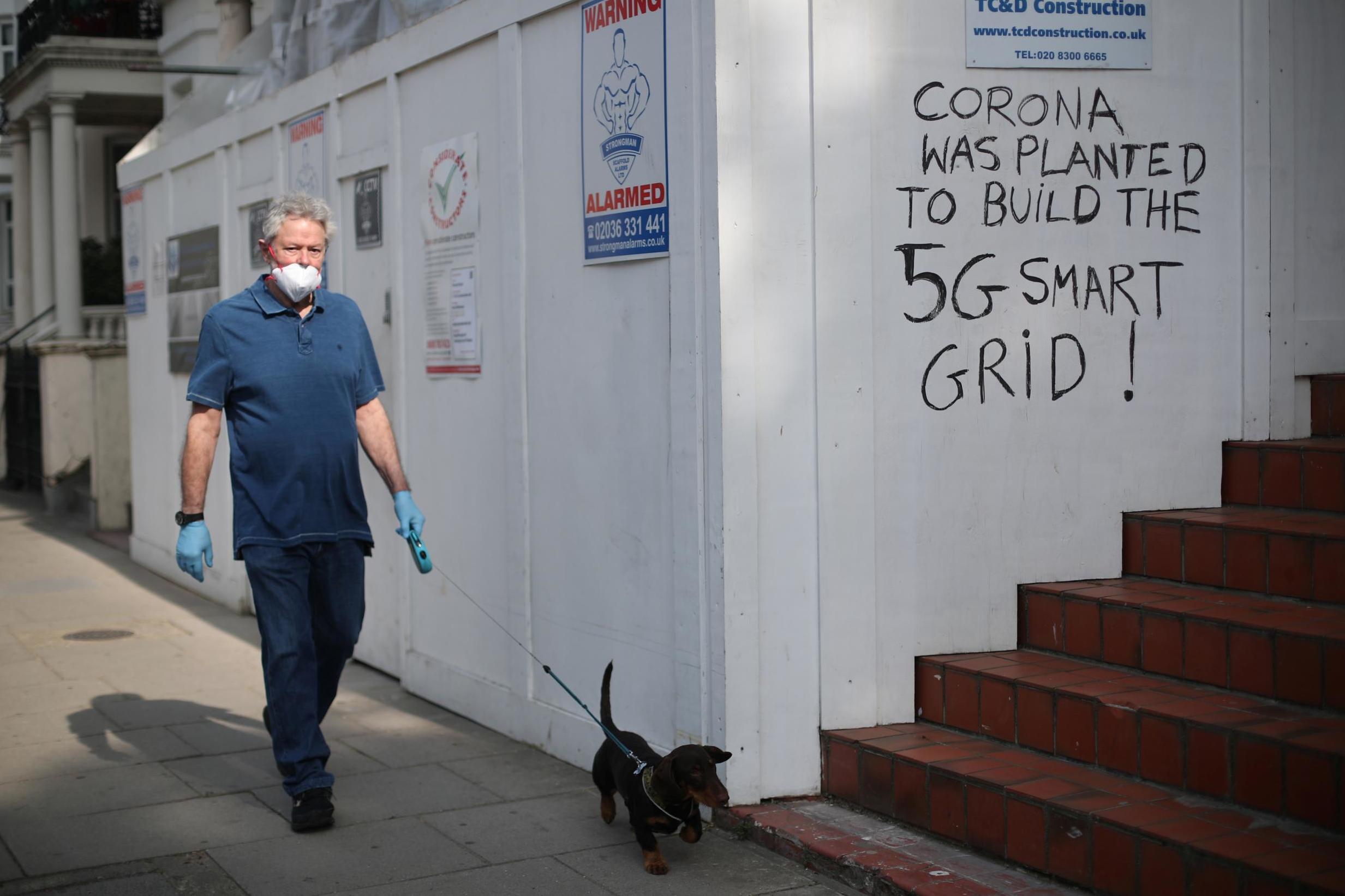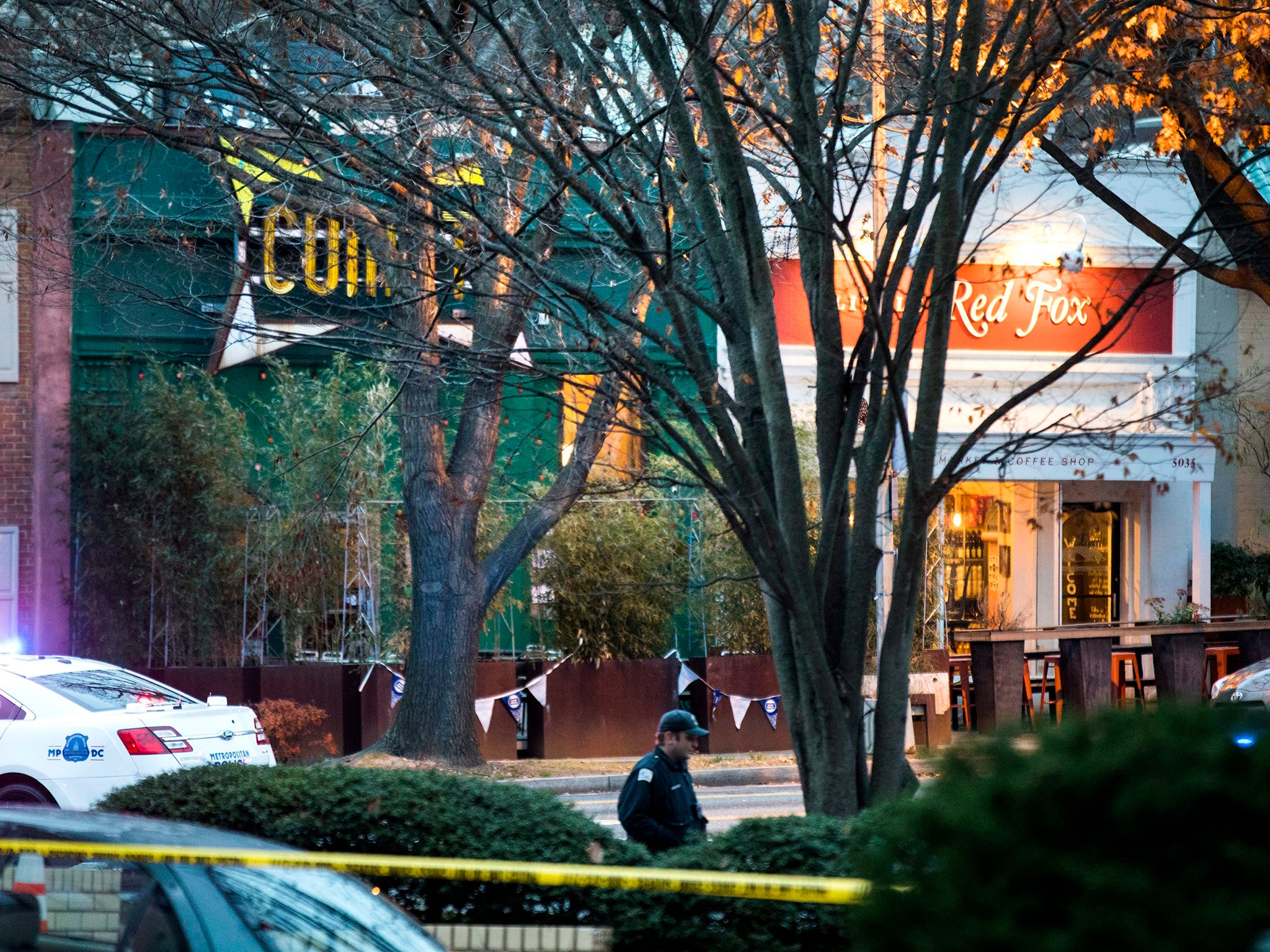Could conspiracy theories cause terror attacks in the UK?
Analysis: Fears have been heightened because of coronavirus, but conspiracy theories have already sparked attacks around the world, Lizzie Dearden writes

On 29 August, thousands of people descended on Trafalgar Square in London for the “unite for freedom” rally.
It drew conspiracy theorists of all kinds, from groups who believe coronavirus is fake, to those who think the disease is part of a plot to depopulate the world.
Many demonstrators were voicing their opposition to vaccines, while others were calling for a halt to 5G technology because of beliefs it can cause harm or even mind control.
To many, the theories seem ludicrous or laughable, but those following them believe they are privy to vital truths.
British conspiracy theorist David Icke, who believes the world is controlled by “reptilians”, told the crowd they were an “island of sanity in a world of madness”.
Their beliefs, once tucked away in niche corners of the internet, are spreading into the real world and are now being flagged as a potential terror threat.
Gilles de Kerchove, the EU Counter-Terrorism Coordinator, warned that following a spate of attacks on 5G masts, there could be “more serious examples in the future”.
The US has already seen violence linked to the “Pizzagate” conspiracy theory, which claimed that leaked Democratic emails contained coded information about a child sex ring.
In December 2016, it culminated in an armed man opening fire at a Washington restaurant after going to “self-investigate” the claims.
No one was injured in the incident, but several mass shootings and terror attacks have been inspired by another conspiracy theory - the Great Replacement - which claims white people are being eradicated in the West.

It inspired attacks including massacres in Christchurch, New Zealand, and Poway and El Paso, in the US.
The shootings were rightly categorised as white nationalist terrorism, but the label has resulted in the role of conspiracy theories being overlooked in favour of wider ideological trends.
The UK’s Commission for Countering Extremism has called for the government and security services to look beyond traditional categories to all material that “makes the moral case for violence”.
Conspiracy theories, especially those that claim people are under threat from malevolent powers, can do that easily.
As Sara Khan, the lead commissioner for countering extremism, previously told The Independent: “We’ve always treated conspiracy theories as being something harmless, wild and wacky but I think that’s been a mistake.”
Fears that such theories could ultimately inspire acts of terrorism may prove to be unfounded, but coronavirus is giving them an unprecedented level of publicity that could draw in many more followers.
Islamists and far-right extremists have also sought to exploit the pandemic, and counter-terror police have been warning for months of the increased danger of radicalisation during lockdown.
Security services will be watching to see whether conspiracy theorists will melt back into obscurity as coronavirus disappears, or evolve into a more deadly strain.
Join our commenting forum
Join thought-provoking conversations, follow other Independent readers and see their replies
0Comments